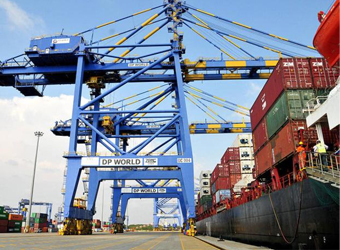Saudi Arabia is banning imports of Egyptian strawberries due to pesticide residues, Abdel Hamid al-Demerdash, the head of Egypt’s Agriculture Export Council, announced Sunday, the latest such ban to hit Egypt as it struggles to revive its economy.
The temporary ban comes into effect on July 11, Demerdash told Reuters on Sunday, adding that the memo received from Saudi Arabia did not specify the levels of residues detected or name the companies that have committed violations.
“Egypt will not face large losses due to the ban as the exporting season for strawberries ended on April 10,” Demerdash said. He added that strawberries represent 5-10 percent of the country’s total agricultural exports.
Since a currency float in November, which roughly cut the pound’s value in half, Egyptian exports have been welcomed in new markets due to their increased competitiveness.
Exports of Egyptian vegetables, fruits and legumes amounted to $2.2 billion last year. The main fruit exports include oranges and strawberries.
A series of bans of Egyptian exports however has hurt the image of an import-dependent country seeking to step up exports and curb imports in an effort to narrow its trade deficit.
Exports could also help bring in desperately needed foreign currency that has been low in supply as a result of the 2011 Arab Spring uprising that drove away tourists and investors.
Sudan banned imports of agricultural and animal products from Egypt last month.
The United Arab Emirates also banned imports of peppers from Egypt a month earlier
“I expect the crisis of Egyptian agricultural exports to Arab countries to be resolved before the beginning of the new export season which begins mid-November,” Demerdash said.
Egypt exports about 1.2 million tonnes of agricultural produce to Arab countries annually, he added.
Russia temporarily banned imports of Egyptian fruit and vegetables at the end of last year shortly after a Hepatitis A scare in North America was linked to frozen Egyptian strawberries.
Russia’s temporary ban came shortly after Egypt rejected wheat shipments containing traces of the common grain fungus ergot. Russia denied the two issues were related.
Source: Reuters
